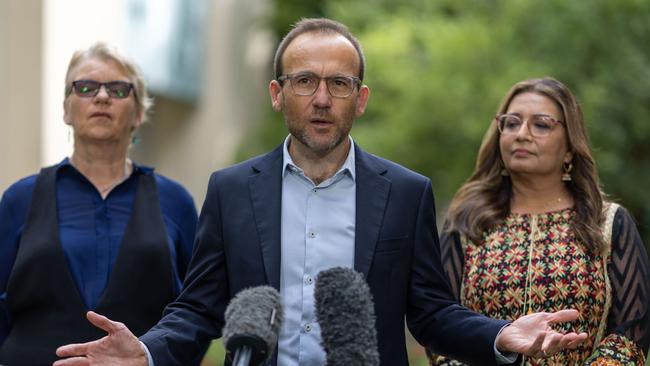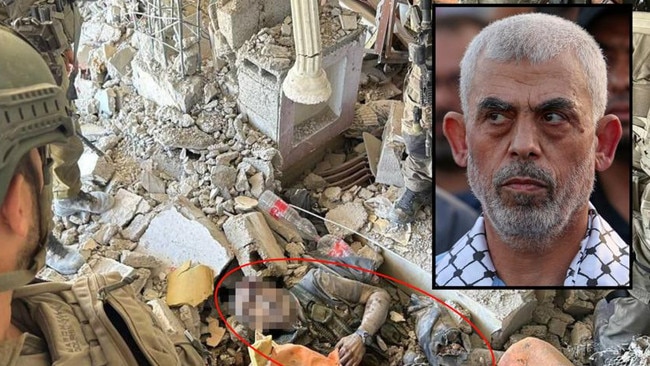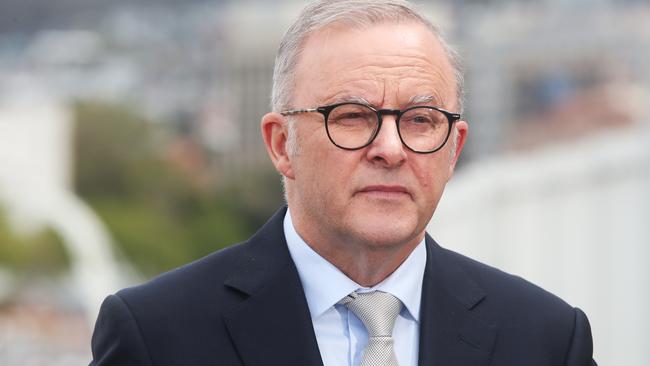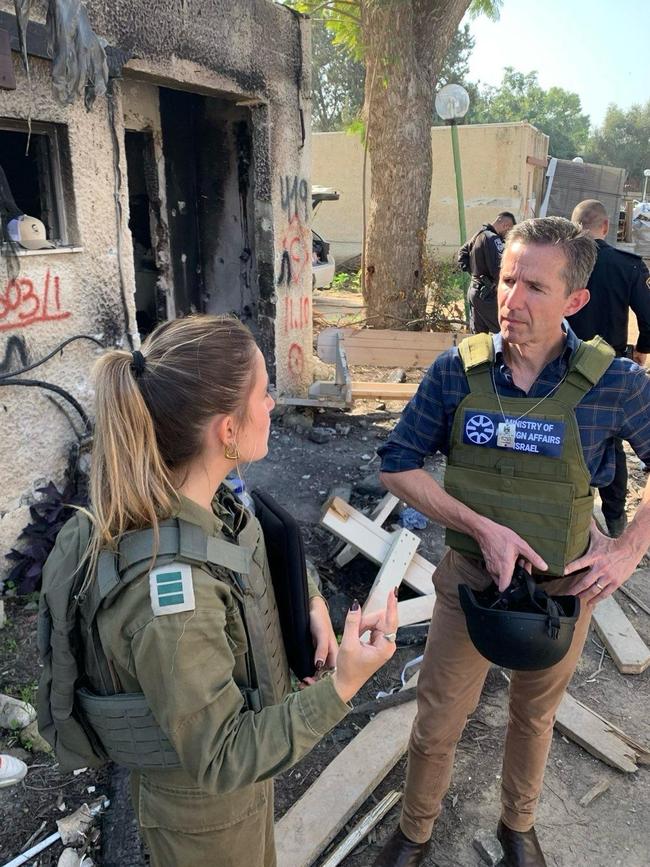Greens silent amid killing of Hamas chief Sinwar
The Greens have remained tight-lipped amid Hamas chief Yahya Sinwar’s death as Labor and the Liberals said that Australia would ‘not mourn’ the slain terrorist.

The Greens have remained silent about Yahya Sinwar’s death as Labor and the Liberals said Australia would “not mourn” the Hamas leader but they would his thousands of victims.
Anthony Albanese said the killing was a “significant moment” and a “vital turning point” in the conflict, and he hoped Sinwar’s death would “break the cycle of violence” and bring an end to the Israel-Hamas war.
Leading Greens, however, were tight-lipped on Friday after the Israeli government confirmed Sinwar had been killed in the southern Gazan city of Rafah.
Federal party leader Adam Bandt was on leave and unavailable, and did not comment on the death on social media. Neither did deputy leader Mehreen Faruqi nor senator Jordon Steele-John, the Greens’ foreign affairs spokesman. Neither senator’s office returned calls on the subject on Friday.
The lack of response from the Greens was in sharp contrast to that of the Labor government and Liberal opposition.

The Prime Minister welcomed Sinwar’s death, saying it was a “significant moment” in the Middle East conflict.
“Sinwar was a terrorist and the architect of the atrocities committed on October 7,” Mr Albanese said, calling him not just an enemy of Israel but of “peace-loving people everywhere”. “(His death) can be a vital turning point in this devastating conflict.”
Mr Albanese renewed his calls for a return of the remaining hostages in Gaza, more humanitarian support for civilians, and a ceasefire that would “break the cycle of violence and put the region on the path to an enduring two-state solution”.
Foreign Minister Penny Wong said Sinwar’s death was an opportunity to end the war, saying the terrorist leader had committed “untold suffering (on) so many people”.
“His violence culminated in the worst loss of Jewish life in a single day since the Holocaust,” Senator Wong said.
“We all look to a day when Gaza is free from Hamas, and to a day where both Israelis and Palestinians can live in peace in a two-state solution, which ensures that both parties (and) peoples can live in peace and security.”
Treasurer Jim Chalmers said Australia did not mourn Sinwar’s death “for one second”, but that it did for all his victims and civilians lost in the ongoing conflict.

The federal opposition also welcomed Sinwar’s death, but rejected the government’s call for a ceasefire, arguing it would allow the terror organisation to regroup and reassert control over Gaza.
Peter Dutton said the killing was a “great day” for the Middle East and the world was now a “safer place”. “(Sinwar) had equal disdain for Israelis, as evidenced by the October 7 atrocities, as he did for his own people, whom he used as human shields and kept impoverished in pursuit of his own twisted world view,” the Opposition Leader said.
An “ugly flame of vicious terrorism” had been extinguished, opposition foreign affairs spokesman Simon Birmingham said, adding that Sinwar’s death provided a degree of “justice” to the families of those killed or taken hostage on October 7.
Opposition home affairs spokesman James Paterson said calls for a ceasefire while Hamas remained active were premature, taking a swipe at the government’s stance.
“If Israel had followed the Albanese government’s advice and instituted an immediate ceasefire several months ago, Sinwar would still be alive today and Hamas would be back in control of Gaza ... it is a good thing they did not,” the senator said.

Former Liberal prime minister Scott Morrison said Sinwar had “gone the way of (Osama) bin Laden”, saying it was “not the time for a ceasefire” but rather for Hamas to surrender.
“That is how this conflict must end … (a) ceasefire would have let Sinwar prevail,” he said.
There was a muted response domestically of people publicly airing support for Sinwar, unlike when Hezbollah chief Hassan Nasrallah was killed last month. Then, the terror group’s flags were waved during rallies in Sydney and Melbourne.
The Hamas chief’s death could change the Middle East, Executive Council of Australian Jewry co-chief executive Alex Ryvchin said. He added that it showed Israel enjoyed “greater advantages” over its enemies than at “any point in history”.
“In destroying Hamas and showing that terrorism will be met with power, and not political capitulation, Israel has transformed regional dynamics and created the conditions for long-term peace,” he said.







To join the conversation, please log in. Don't have an account? Register
Join the conversation, you are commenting as Logout